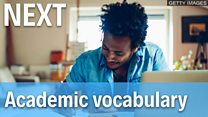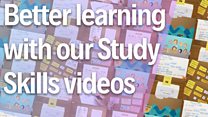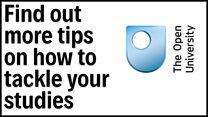Unit 1: Go The Distance: Choosing distance learning
Select a unit
- 1 Go The Distance: Choosing distance learning
- 2 Go The Distance: Academic reading
- 3 Go The Distance: Academic talk
- 4 Go The Distance: Academic writing
- 5 Go The Distance: Finding and using source material
- 6 Go The Distance: Going the distance
- 7 Go The Distance: Critical thinking
- 8 Go The Distance: Social learning
- 9 Go The Distance: Projects
- 10 Go The Distance: Succeeding in exams
Session 3
Study Skills 1 – Better learning
Welcome to the 'Study and Exam Skills' part of 'Go The Distance'! On these pages you'll find a series of short, fun animations, full of advice, tips and tricks to help you become a better learner in all the key areas of your study life. In these videos, you'll get practical tips on note taking, thinking critically, writing assignments, managing your time and lots more! Let's get you on the road to better learning!
Activity 1
The road to better learning
We all know how to learn, don't we? After all, we've been learning for a long time. But stop a moment. Very often we focus on WHAT we're learning, not HOW. Knowing how to learn is important. You can reduce your workload and get better results. Interested? Of course! Watch the video to find out more.
Which study methods work for you?

What's the shortcut to successful study? Here's the bad news: there's no single path. The good news? You can find the way that’s right for you.
To do
Watch the video. See if you can pick up seven main ways in which you can improve your study skills (write them down if you like). Then scroll down to check your answers.
Watch the video

Narrator
We all know how to learn, don't we? After all, we've been learning for a long time.
But stop a moment. Very often we focus on what we're learning, not how. Knowing how to learn is important. You can reduce your workload and get better results. Interested? Of course!
So, what's the shortcut to success? Here's the bad news: there's no single path. Good news? You can find the way that's right for you.
How? Reflect. This means to think deeply about yourself, not to look at yourself in the mirror, so you can understand how you learn best.
Let's go back in time. Think about a good learning experience in the past. Why was it good? And a bad one: what were the difficulties? How did you feel? And what about now? Which aspects of study do you struggle with? What comes easily?
You can keep a learning journal as you continue studying, to understand your strengths and weaknesses. And consider your motivation for studying. You'll begin to understand yourself better.
All this can help you prioritise, and to make a study plan, including selecting the best tools for you. Not those kind of tools: study tools and techniques! Why not pause the video and look them up? There are lots more.
And we're here to help you learn how to learn. In this series of videos, you'll get practical tips on note taking, thinking critically, writing assignments, managing your time and lots more. Because once you know how you learn best, you're in the driving seat.
7 top tips for successful studying
You've nearly reached the end of this unit. At the bottom of this page you can find links to more useful study skills materials.
But before we finish, let's take another look at what we've learned about learning better. Check to see if you identified all seven tips!
- Don't just focus on what you're learning – think about how you learn
- Reflect and think about how you learn best
- Review your past learning experiences – good and bad!
- Keep a learning journal
- Make a study plan
- Explore different study tools and choose the ones that work for you
- Watch the rest of our Study skills videos!
Session Vocabulary
Find out more about distance learning – visit our partner,The OU
____________________
To help you understand the tips in this Study Skills video, here are some key words and their definitions:
motivation
a feeling of interest of determination that makes you keen to do somethingto prioritise
to decide which things are most important and do them first


